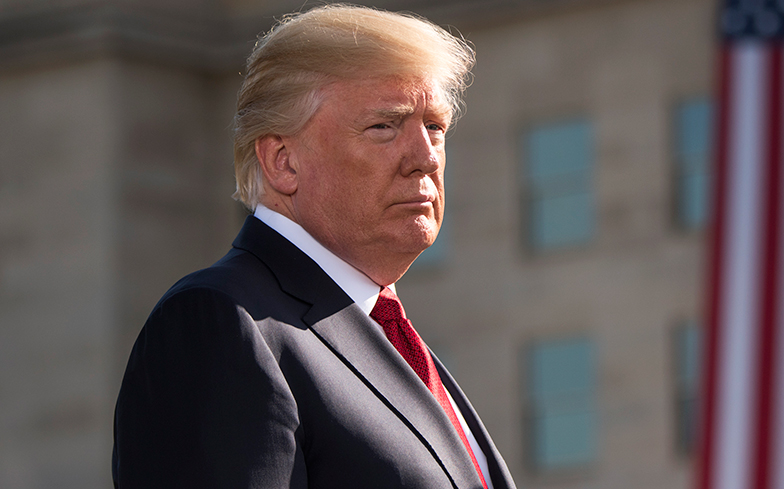Trump continues to prove that he’s not an LGBTQ ally.
On Wednesday (14 August), the Trump administration proposed a new rule to allow businesses with federal contracts to cite their religious beliefs as a reason to discriminate based on sexuality, gender identity, race and other characteristics.
The Labour Department say the proposal has been created to “ensure that conscience and religious freedom are given the broadest protection permitted by law” for companies that compete for federal contracts.
But LGBTQ activists have argued that the proposed rule will permit companies to legally discriminate against – and avoiding hiring – lesbian, gay, bisexual, trans and queer people, or anyone who doesn’t practice or agree with their religion.
The American Civil Liberties Union noted that “nearly one-quarter of the employees in the US work for an employer that has a contract with the federal government” – meaning the proposal could have widespread impact if it’s approved.
“Once again, the Trump administration is shamefully working to license taxpayer-funded discrimination in the name of religion,” they said in a statement.
“We will work to stop this rule that seeks to undermine our civil rights protections and encourages discrimination in the workplace.”
LGBTQ activist group Human Rights Campaign called out Trump for breaking his promise to leave Obama’s 2014 workplace protections for LGBTQ people “intact”, and demanded the proposed change be withdrawn.
“With this proposed regulation, the Trump administration is seeking to gut existing protections for LGBTQ people, women, and religious minorities, and we cannot stand idly by,” said Human Rights Campaign President Alphonso David in a statement.
“This regulation, which directly contradicts Trump’s earlier promise, is a broad and sweeping effort to implement a license to discriminate against people on the basis of their gender identity and sexual orientation.
“Everyone deserves a workplace free from discrimination. The Trump administration needs to withdraw this proposed regulation and stop these attacks on LGBTQ people.”
The proposed rule will now undergo a 30-day public comment period.




